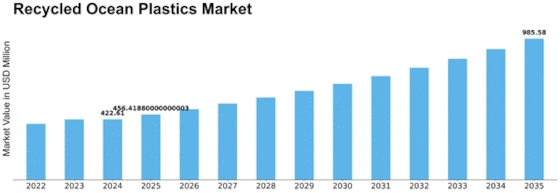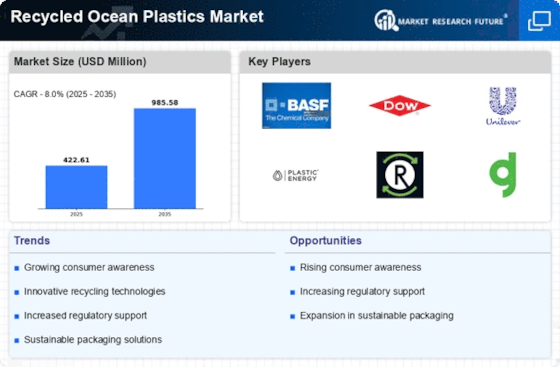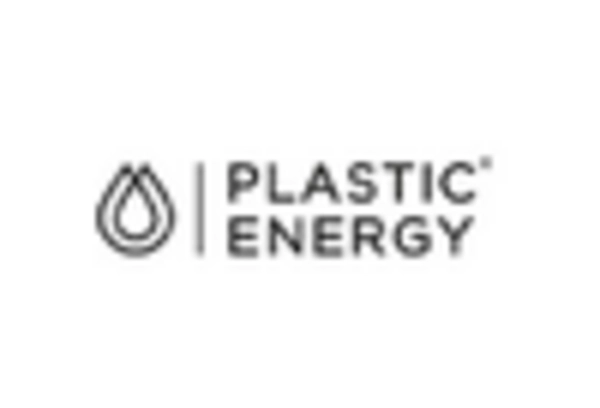Africa Recycled Ocean Plastics Size
Africa Recycled Ocean Plastics Market Growth Projections and Opportunities
The Africa Recycled Ocean Plastics Market is significantly influenced by a number of market factors. This market is driven primarily by an increasing awareness and concern about environmental sustainability. Strategies that address the plastic pollution problem have become necessary due to people’s growing awareness about the effects of plastic waste on oceans and marine life. It is another way where recycled ocean plastics save natural resources, hence contributing to environmental saving for the community members including customers as well as organizations through decreasing reliance on newly-manufactured plastics. Government regulations and initiatives also play a critical role in shaping Africa Recycled Ocean Plastics Market. Several African countries have enacted stringent laws aimed at curbing plastic pollution and encouraging recycling. Government has put into place legislations that forbid use of single-use plastics while promoting use of recycled materials. Similarly, there are various corporate sustainability programs or initiatives in this regard which also encourage companies towards sustainable practices resulting in higher demand for recycled ocean plastics across the region. Changes in consumer preferences towards greener products have led to changes on how recycling ocean plastics operates within the markets. More people today realize that their choices can have dire ecological consequences; thus, there is an upsurge in demand for those products made from recycled materials including recycled ocean plastics. The packaging industry gains competitive advantages by aligning its business with environmentally conscious customers’ values through using recyclable packaging or utilizing recyclable material in product designing. Market growth hinges largely on availability and quality of recycled ocean plastics. Efficient collection as well as recycling systems must be established so as to obtain high-quality recycled plastics. On top of this, innovative methods used to collect, sort out, process sea-borne plastic greatly contribute to feasibility of using recyclables in manufacturing processes. Usually, such projects are developed jointly by governments, NGOs and private sector enterprises. Similarly, economic factors such as price differences between virgin plastics versus those made from recycled materials; overall economic stability in the area; and cost-effectiveness of recycled ocean plastics to businesses are some of the other factors that influence the Africa Recycled Ocean Plastics Market. The relative costs compared with virgin plastics also affect business’ use of recycled ocean plastics for environmental reasons. Economic instability might make companies reluctant in investing into sustainable practices thus many firms prefer decisions that align with ecological demands but are more cost effective. Additionally, technological advancements in recycling processes drive the market. Innovation is continuously improving recycling technologies, which have an impact on how many tons get recycled and reused. Better collection systems as well as processing techniques accepting these materials need to be established to increase its share in production. Therefore, more advanced methods can better this recycled ocean plastic making it more adaptable for different uses. The future growth of Africa Recycled Ocean Plastics Market will mainly depend on further enhanced state-of-the-art recycling technologies being applied.



















Leave a Comment